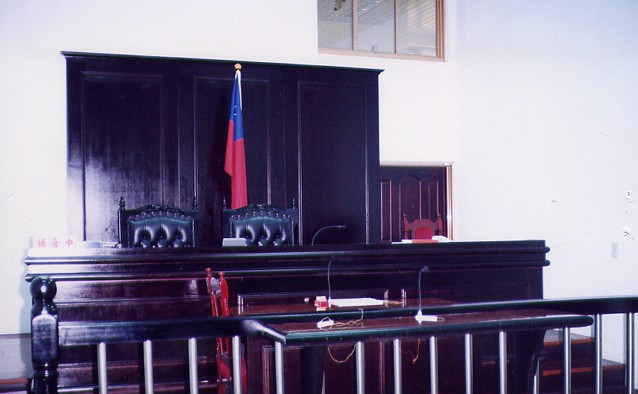Duties and responsibilities of prosecutors
- Publication Date:
- Last updated:2025-03-03
- View count:2940
Dealing with criminal cases 
- Investigation: According to Article 228, Criminal Procedure Code, a prosecutor shall investigate immediately when he is aware of law-offending cases through complaint, reporting, surrender of the suspect and other sources. Public prosecution, non-indictment or transfer of the case shall be made after the investigation.
- Indictment: A prosecutor shall prepare public indictment against the suspects after investigation and forward the case to the court for trial. Implementation on pleas of the crown: In every case, the prosecutor must participate in cross-examination and justification on the court during the judicial process.
- Acting as a prosecutor: A prosecutor shall act as a prosecutor on behalf of the state against criminal offenders. He shall present at the court on the trial and state the main points of indictment after the accused is interrogated by the judge. He shall maintain his opinions after the court investigation on evidence is made. He shall appeal to the higher court if he considers the court decision unjustifiable to effect eventual justice.
- Assisting in a private prosecution: A victim filing a criminal suit directly with the court is called private prosecution. According to Criminal Procedure Code, a victim may file a lawsuit with the court. The lawsuit also may be filed by the legal-representative, lineal relatives or spouse of the victim if he is of incapacity, prohibition or dead. The prosecutor shall state the facts or his opinion at the trial on the date announced by the court if he believes it is important for the interest of the state and society to offer assistance to the private prosecutor.
- Taking over private prosecutions: Where a private prosecution is unable to proceed or withdrawn on account of profit offered or threat exerted by the defendant, the prosecutor shall take over the case and carry on the prosecution if he considers detrimental otherwise unless the suit can only be instituted by the private suitor.
- Directing the enforcement of criminal decision: The prosecutor has the responsibility of directing the enforcement of criminal decision made by the court for the enforcement of state penalty, efficiency and justice of law.
Other responsibilities as prescribed by law. 
- Civil affairs
- Requesting for court decree of death or its cancellation.
- Requesting for court decree of civil interdiction or its cancellation.
- Requesting for court decree of dissolution of unlawful corporate body.
- Requesting for court selection of liquidator for corporate body.
- Requesting for court assignment of will executor.
- Requesting for court to change the organization of an incorporation.
- Requesting for court decree of invalidity of act taken by the director of an incorporation.
- Requesting for court selection of temporary administrator when the directors of an incorporation are incapable to discharge their duties.
- Requesting for court selection of inheritance custodian.
- Dealing with compensation the State.
- Dealing with compensation for the wrong detention and execution.
- Directing over matters relating to conciliation by village, town or county conciliation commission.
- Protection for crime victims. The Association for Protection of Victims of Criminal Acts, Hsinchu Branch was established to provide monetary assistance, legal affairs counseling and comfort to the bereaved of the killed and the families of severely injured. A group of volunteers assists the association to help crime victims. According to Article14, Crime Victims Protection Act, a Committee for Compensation to Victims of Criminal Acts was established and is in charge of screening and making decisions on compensation cases and other relevant matters.

